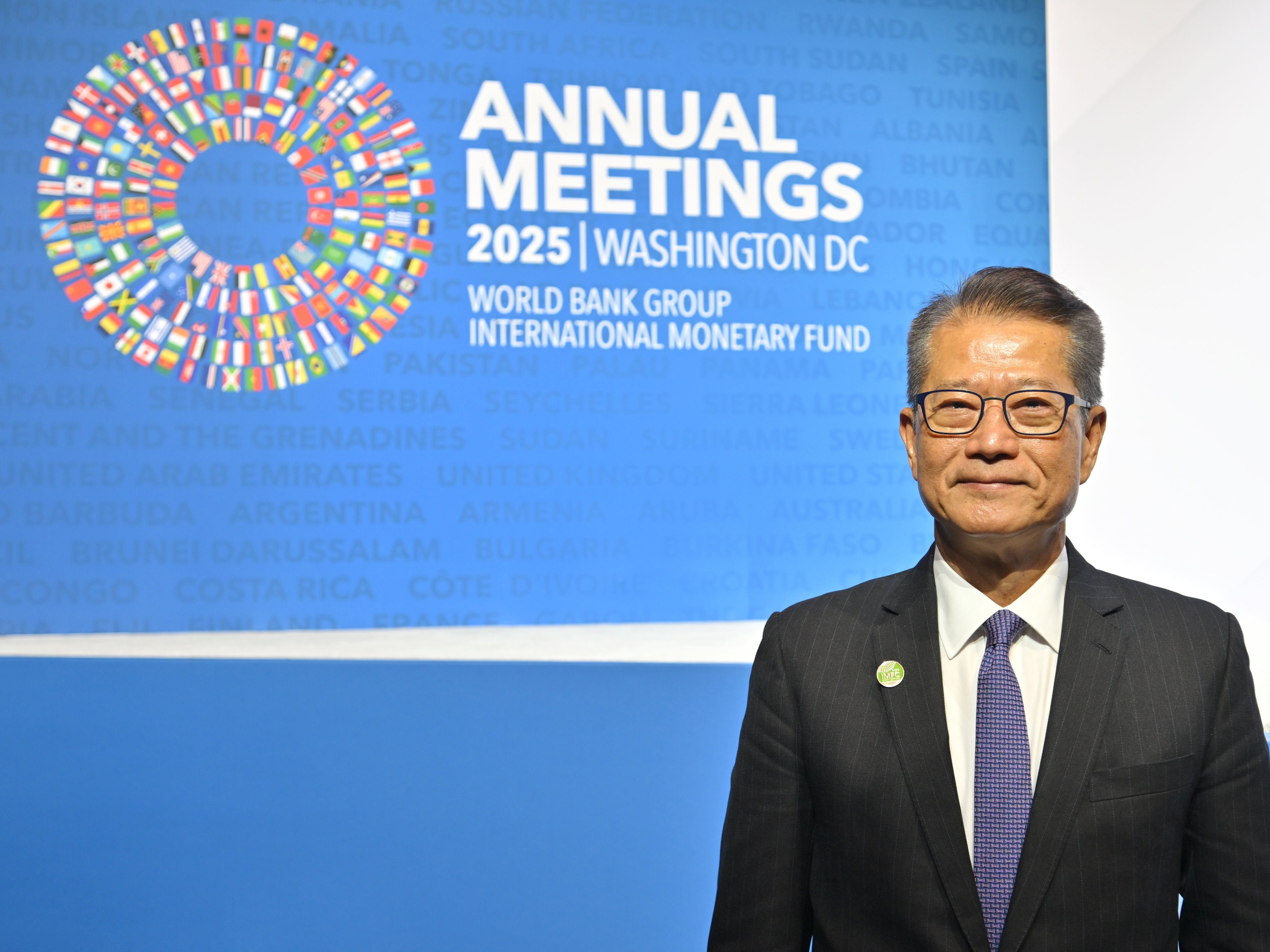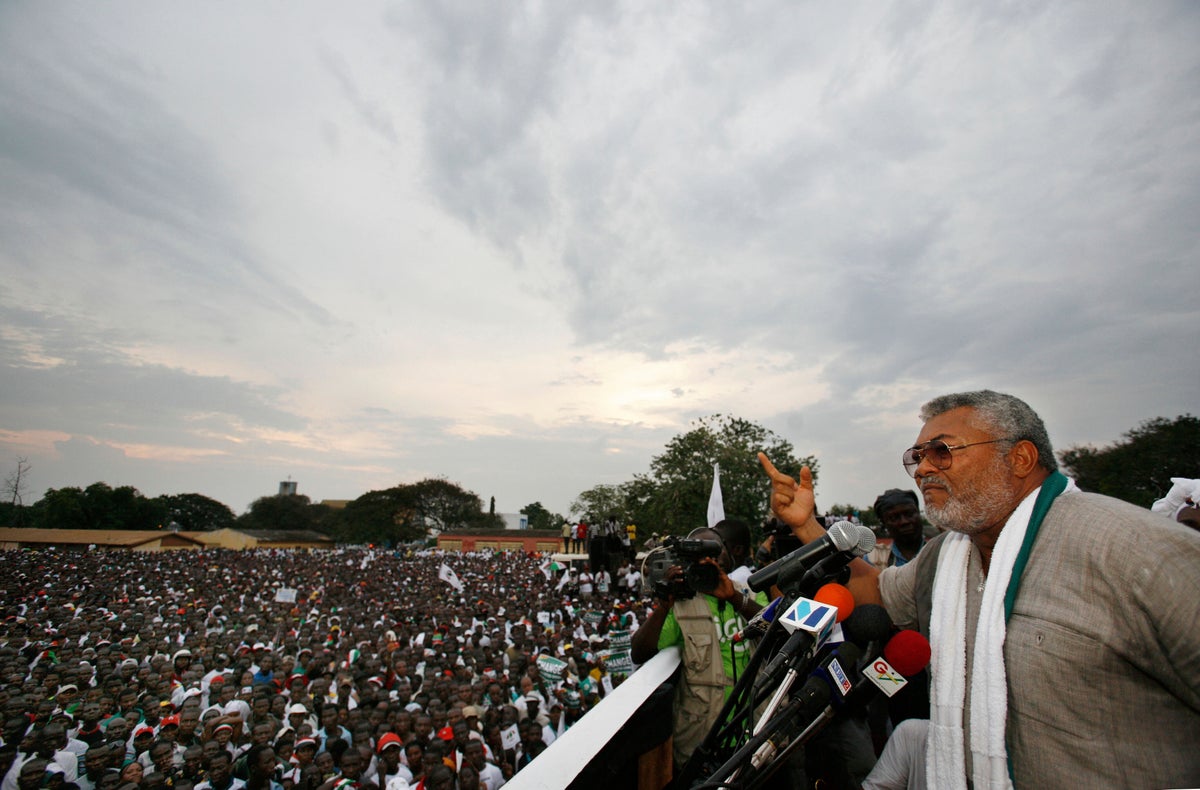Technology
Hong Kong to navigate trade war with new strategies, Paul Chan says in US
Hong Kong will adjust to navigate lingering geopolitical tensions, welcoming new growth in supply chains, financial services and innovation, the finance chief has vowed while promoting the city’s opportunities in the United States.
Financial Secretary Paul Chan Mo-po made his remarks at the end of his first in-person visit to Washington since 2019, as a fresh phase of the US-China trade war looms, with Hong Kong caught in the rivalry.
“Geopolitical tensions will continue to be there for quite some time,” he told the Post on Friday US time in an interview on the sidelines of the annual meetings of the World Bank and International Monetary Fund (IMF) in Washington.
Tensions between the world’s two largest economies flared up last week over new rare earth restrictions and “reciprocal” port fees, which prompted US President Donald Trump to threaten a new 100 per cent tariff increase starting in November.
Hong Kong companies are also targeted. On Wednesday, the US Federal Communications Commission moved to revoke HKT International’s licence to operate in the US, citing national security concerns.
“Trade war tariffs are not good for anyone, even for the American people … from the Hongkongers’ perspective, we need to find a way to navigate this challenge,” the minister said.
Chan is one of the highest-ranking Hong Kong officials to visit the US in recent years. His four-day trip began in New York on Tuesday, where he delivered a welcome message to American businesses and assured the city’s commitment to remaining a free port and upholding its common law system.
In Washington, Chan also met a team from the IMF responsible for regular assessments of the city’s macroeconomic conditions, fiscal and monetary policies, financial stability, and structural reforms.
During the meeting, Chan provided details about the city’s current economic and fiscal conditions, as well as its development directions.
He also said that during the trip, he understood the US perspectives and concerns about Hong Kong and promoted the city’s opportunities.
“Given the current geopolitics, what opportunities exist? Also, under the new government led by Chief Executive John Lee Ka-chiu, what are our priorities and the economic direction for Hong Kong? These are the topics we have discussed,” he said.
But Chan saw opportunities emerging from the rapidly changing geopolitical landscape.
For instance, the reconfiguration of mainland Chinese companies’ industrial base and supply chains – many moving business operations to Southeast Asia to avoid high US tariffs – has allowed the city to become a hub for supply chain management, professional services and trade finance.
Funds raised from initial public offerings in the city jumped 220 per cent year on year to US$23.3 billion in the first nine months of this year, strengthening its position at the top of the global rankings.
“Our stock market is doing very well,” Chan said. “We can help these mainland companies going global to come to Hong Kong to raise funds to support their overseas expansion.”
He also pledged to provide an environment for stablecoins and other digital assets to grow responsibly and sustainably.
“Our general policy concerning digital assets is that this is an innovation based on blockchain technology and we need to embrace it,” he said. “Our idea is to put in proper guard rails so that this sector will be able to grow while the risks are properly managed.”
Chan also pointed to the risk to financial stability, anti-money-laundering and the need for investor protection.
The city is going to start issuing licences from the beginning of 2026 after the Stablecoins Ordinance took effect in August this year.
The government will initially issue a handful of licences, according to the finance chief, and only those with “a real-life case usage, a demonstrable and sustainable business model, strong compliance culture, and risk management culture” will be granted.
“We want to do it prudently, step by step,” he said.
Chan said Hong Kong would continue to play its superconnector role in China’s coming five-year plan, with plans for development objectives such as outbound investment and renminbi internationalisation.
“The overriding principle is how to make good use of Hong Kong under the ‘one country, two systems’ framework with these unique advantages, connecting China with the rest of the world.”
To support Beijing’s overseas yuan strategy, Chan said Hong Kong would boost investment and risk management products, more liquidity and infrastructure to help promote the use of renminbi in international markets.
The city is the largest offshore renminbi centre, with about 968 billion yuan of bank deposits as of August and a variety of Connect programmes to facilitate two-way capital flows.
“The bigger picture, globally, is that the use of renminbi will be on the rise,” he said. “There will be more offshore renminbi and this money needs to find investment opportunities.”



















